The Northumberland Honey Story by Freeman, Luke Hutchinson
How I got into Beekeeping
My beekeeping journey starts in the early 2000s. As a curious teenager getting up to all sorts of mischief and thinking it was a great idea to open up some of my fathers beehives.
The first 2 hives- it was a great learning experience, the hives were empty with lots of old combs to explore, fascinating for a young boy with an expanding mind.
So many questions, questions I was keen to find answers for. The third hive was much more interesting as live bees inhabited this one, and sure enough very quickly taught me the respect that bees command! A hasty retreat was in order, and a retreat that led me into a depth of books on the subject and unknown to me at the time a later career in bee farming.
My father was a dentist, a busy man with his own practice, what little spare time he had he taught me a lot both about teeth and bees, and I greatly admired him for this. But as is often the case with a father-son relationship we had differing ideas which resulted in me mostly ploughing my own furrow and ultimately learning from my own mistakes!
Early Challenges as a teenager getting into Beekeeping in the early 2000s.
Fascinated by beekeeping, I approached my nearest local beekeeping association and to say they were indifferent to my enthusiasm was an understatement. It was almost impossible at the time to have the association accept my membership. I was completely at odds with what the typical beekeeping demographic of the time was and they simply couldn’t believe an early teenage boy wanted to join a beekeeping association.
Time marched on, and an enthusiastic biology teacher at school, humoured my enthusiasm and allowed me to undertake a placement at the National Bee Unit during my summer holidays. This is something I undertook twice, strong-arming my parents into driving me there every day, and latterly driving myself.
I was truly bitten by the beekeeping bug! At this point I was keeping around 10 colonies of bees and selling honey to friends and family. Yes no free meal here from a young entrepreneur. Although rest assured absolutely no profit was made, with all proceeds going straight to the beekeeping equipment suppliers! It goes without saying, if you want to prevent your kids going ‘off the rails’ get them into beekeeping as then they’ll never have any money to be misled, it really is a capital heavy venture.
A different career.
Even though beekeeping was a huge part of my teenage life, it was seriously not on the cards as a career. There were commercial beekeepers in the UK, but beekeeping as it is now and was then, is almost impossible to get into as a career.
Beekeeping generally isn’t well paid, there are mainly one man band outfits and many many barriers to growth (covered later!). This is something that I was aware of at the time, and job security was important to me, as was doing a career I knew I would enjoy and be good at, I was an old head on young shoulders.
This is where a 5 year stay at Newcastle University came and following my fathers foot footsteps in qualifying in Dentistry. A career in this field came, and you know what, I consider myself as being quite good in this area (I know this comes across as self-important and arrogant, I am genuinely not!). Although in 7 years I placed implants (in my first training year which I think is still a first for a newly qualified dentist!)I also became a clinical fellow and lecturer at Newcastle University and speciality doctor in special care dentistry at Newcastle, teaching both undergraduates and postgraduates in complex dentistry. I worked in Oral Maxillofacial Surgery and Oral Medicine and had a real zest for this area which led to me nearly doing the double and considered doing a medical degree too. I found medicine and dentistry fascinating.
It was at Newcastle university where I met Suzie, my wife. Suzie was studying for a masters in research at the time we met. Suzie followed on with a PhD in molecular nutrition / genetics of aging. Our direction of travel was well and truly mapped out at the time. We were going places in our respective fields. That is until I developed carpal tunnel in both hands. A condition which gives weak grip and numbness in the fingers, one very much not compatible with the career I was in. Suffering a failed surgery and being told there was nothing anyone could do was a real blow.
We were expecting our first child, and Suzie who had finished her PhD was already producing sparkling mead which was very much a tiny ‘business’ at the time as this was her brain child and passion.
However my situation left a real problem, the threat of a lost income through my health, baby on the way, and the realisation that Suzie also wouldn’t be able to singlehandedly run the fledgling business she had worked so hard to set up. We had significant problems to overcome.
It was a real struggle in the early days. A struggle that is often romanticised in magazine articles run on our company as an ‘escape to the country’ when in reality it was a cliff edge that we met that we had to tackle, with actually no real intention to set up a large commercial beekeeping business at the outset. Something that was essentially borne out of necessity rather than desire.
Nonetheless we survived, it took various circumstances to align (much too many to go into here!), and we are now here with a business that has built itself up from nothing and ensured we survived a very turbulent few years with plenty of downs! Self made, with both myself and Suzie still at the reins.
Look After the Bees and They Will Look After You.
An inspirational old beekeeper once told me, ‘if you look after the bees they will look after you’, these words are regularly echoed by me when giving advice to young beekeepers looking to get into the industry. That is the difference between hobby beekeeping and commercial beekeeping. We are completely dependent on our bees and their health is not just a concern to us, it is everything to our existence too. That is why we work to the highest standards in everything we do in our beekeeping work.
Where we are today
Today we employ 4 people, with 2 more due to start this year and usually 2 seasonal beekeeper helpers. We have also successfully trained and qualified an apprentice beekeeper who completed the Diploma of Excellence in Bee Farming which I know fellow Wax Chandlers will be familiar with. From our present 300 colonies we aim to produce around 20 tonnes of honey per year. 1/3 of our honey goes into making the mead and other value added products, 1/3 into jars for retail, and 1/3 goes bulk to other honey packers.
In 2022 we moved into a new 500m2 unit nearby to where we started. Which brought many challenges, some of which we were not aware would happen!
Business rates were one of the largest challenges that we had not fully accounted for. With business rates being based on the area of the property from our calculations we expected to be below the rates threshold. However following a re-valuation (with the building being a new build) we were advised we had rates to pay above the threshold and given it took a year to get the rates bill, we ended up with only 6 months to pay effectively 2 years worth of rates. This worked out at a shock bill of £2,000 per month for 6 months. Pay it or go to prison was the reality. Needless to say, we got over the shock and with some very very hard months made it through. We are currently however still embroiled in a battle with the VOA. It transpires that the majority of bee farmers in the UK do not pay business rates, as bee farming is classed as agriculture. So watch this space, currently we are at a significant competitive disadvantage. The ruling on our case may well pave the way as a case study for other bee farmers placed in a similar unfortunate situation.
Day in the life of a professional beekeeper
I couldn’t write this article without covering a typical day in the life of a professional beekeeper. In the available space there is certainly not enough room to cover everything. You have to be a jack (or preferably master!) of all trades. One minute you could be building hive parts, carrying out hive inspections, managing swarming colonies or raising queen bees. The next you could be in a meeting with officials undergoing food hygiene inspections, or meeting prospective retailers looking to stock your products. That’s without the website work, we are relatively unusual as we have built our own website up from nothing. To a point where we now have our own server, undertake all our own updates, search engine optimisation, content writing and coding where necessary. The reality is that the website is responsible for over half of all sales so is of paramount importance.
It would be remiss to not impress on the fact that I strongly believe no ‘man’ is an island. Myself and Suzie could not do any of what we do without a solid team behind us. I have learnt a lot about managing teams over the years, and how to improve your own performance. From a personal perspective I have learnt how to build a successful website, growing the traffic and automating order processes along the way. With our online sales there are times we can be sending out 100 orders a day in busy times. Which calls for a very slick system when it comes to generating labels, packing lists and building an efficient system for staff to work with, all the while making staff training fun and engaging.
Our Aspirations
Finally ending on a positive, we do love talking about aspirations. As a beekeeper you must have a glass half full, with so much working against you.
We have great aspirations for Northumberland Honey Company. It is not a business we hope to ‘fatten up and sell on’ rather, building a solid foundation for a business that will stand the test of time and be there for future generations to ensure the skills required to keep professional (commercial) beekeeping going in the UK .
There is rightly a huge focus on how we can help beekeepers in other countries to build businesses and build a career in beekeeping, but having started this journey in the UK from an early age I can assure you a young person today with aspirations of getting into commercial beekeeping in the UK will most certainly be met with the career equivalent of a brick wall.
This really has got to change if we hope to become self-sufficient in honey in the UK. After all, why should we be importing so much honey with the associated carbon footprints of shipping when the potential is here for home grown UK honey? The puzzle is complex though, with many areas needing to align to really help UK bee farms succeed.
Future Concerns in the UK Professional Beekeeping Industry
UK beekeepers only produce 5-10% of all the honey consumed in the UK. The rest is imported.
There are only 400 commercial beekeepers in the UK, of those only a handful are in a position to employ anyone. Most are one man bands, and therein lies the problem with growing an industry such as bee farming. It is imperative to have employment opportunities for people to gain sufficient experience and for new bee farms to be propagated, however opportunities are seriously limited.
A young person seeking an apprenticeship scheme for example, if they are lucky will find a bee farmer who can take them on, but there are only a handful across the country. They will likely have to move location closer to an employer, and then find money for renting a property, council tax, bills etc whilst working in an industry that still has relatively low rates of pay. It is a challenge for both young people and bee farmer employers.
I believe the UK professional/ commercial beekeeping sector is currently very vulnerable. With few members, a lack of skilled workers, a small voice and ageing demographic. I lose count of the numbers each year who sell up. There are also reportedly half the number of bee colonies in the UK now compared to around the time of the second world war (Bailey & Perry (1982)) yet there are now movements to say that honey bees are negatively affecting wild pollinators. The question for me here is how can this be with no actual increase in colony numbers?
An increasing number of bee farmers are also losing sites off corporate land who now deem commercial beekeeping to be the enemy of sustainability.
This isn’t great news and as the industry faces multiple challenges and the need to demonstrate it is fit for purpose in modern times and has a place.
The alternative is we lose vital skills, the UK honey and beeswax market becomes only open to imports, with production of UK honey and beeswax effectively reduced to a hobby scale with the UK increasingly relying on overseas products for goods that can and should be produced at home.
In a time of a particular need to avert a climate crisis by reducing our carbon footprint, surely UK produced honey and beeswax should be the answer to a lower carbon footprint in the honey / beeswax industry. But the reality is we are not in a strong enough position yet to produce all the products the country needs, which is at odds with places like New Zealand who are net exporters of honey.
Suggestions for ways to further improve the landscape of professional beekeeping in the UK and discussions around our table are always very much welcome, please do feel free to write to us or catch us for a chat at one of the lunches or dinners. Those that know myself and Suzie know we’re always up for a good debate on beekeeping.
As a final thought, ultimately my hope is that the operating landscape for professional beekeepers in the UK will improve. I hope there will be increasing opportunities for youngsters coming into the industry, to make the industry vibrant and viable for the next generation. Today at 37 years of age I hope when I come to retirement I’m not one of the only ones left at a bee farmer meeting and I hope I’m crowded out by youngsters making a real career out of bee farming telling me how I should have done it!

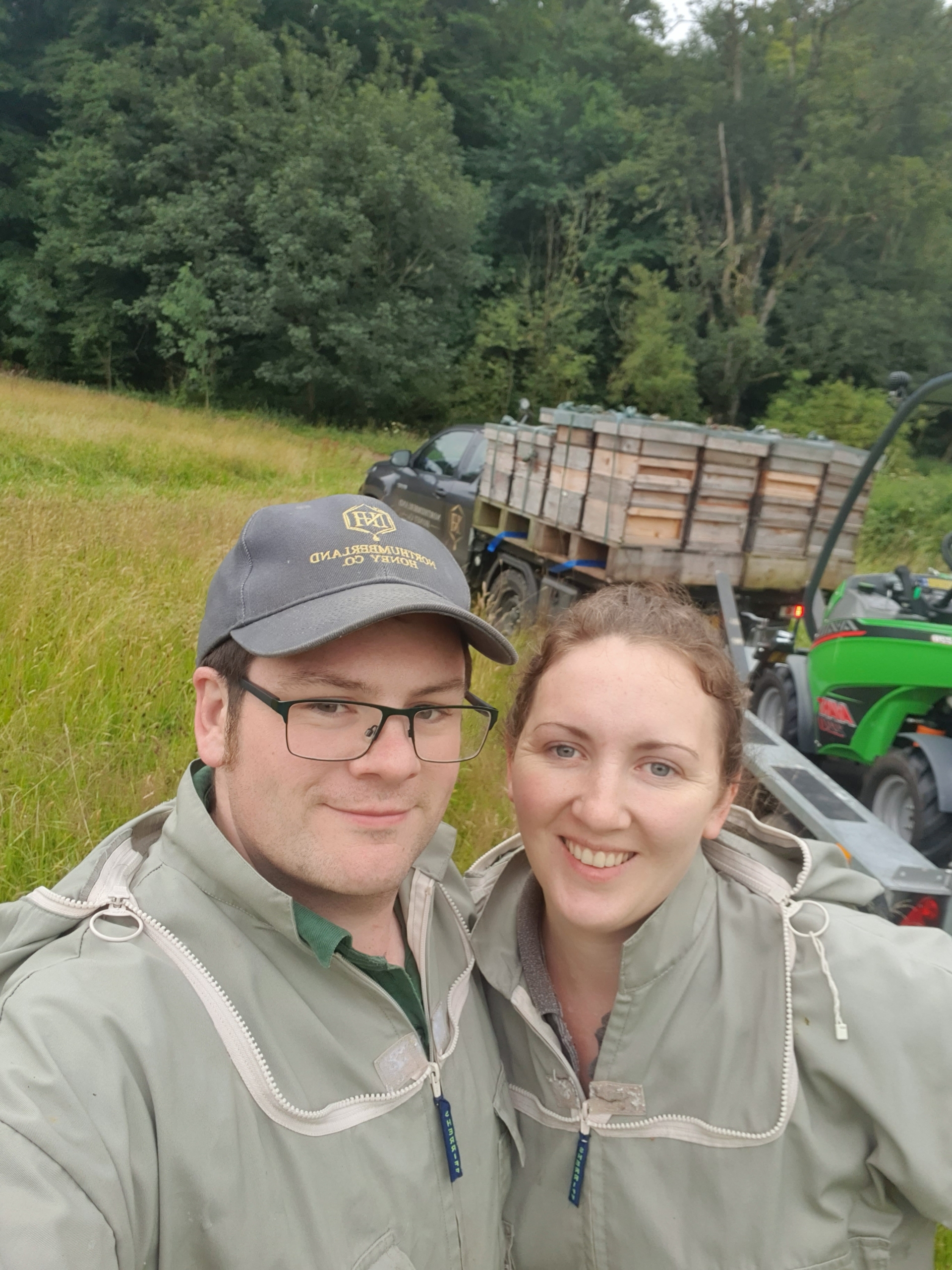
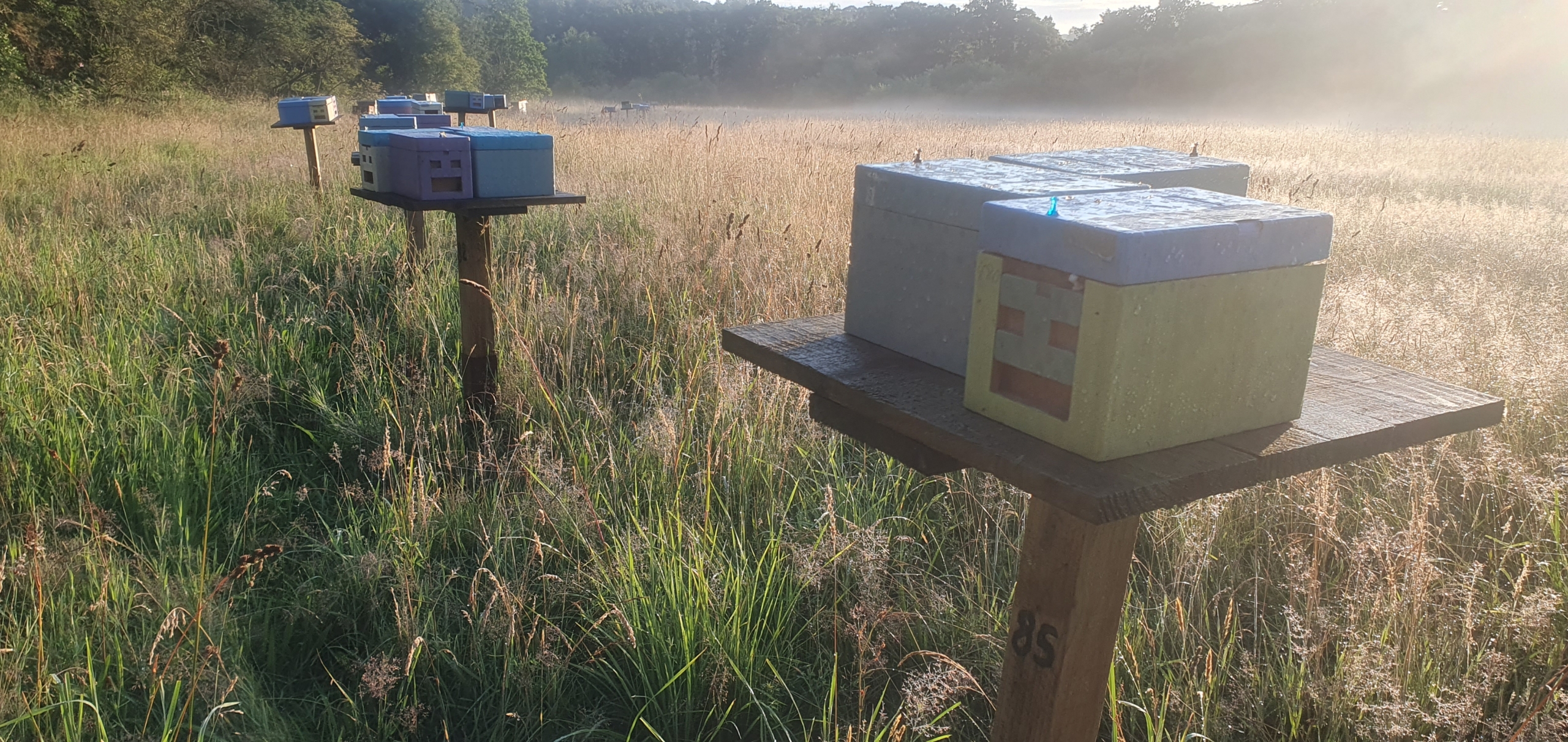
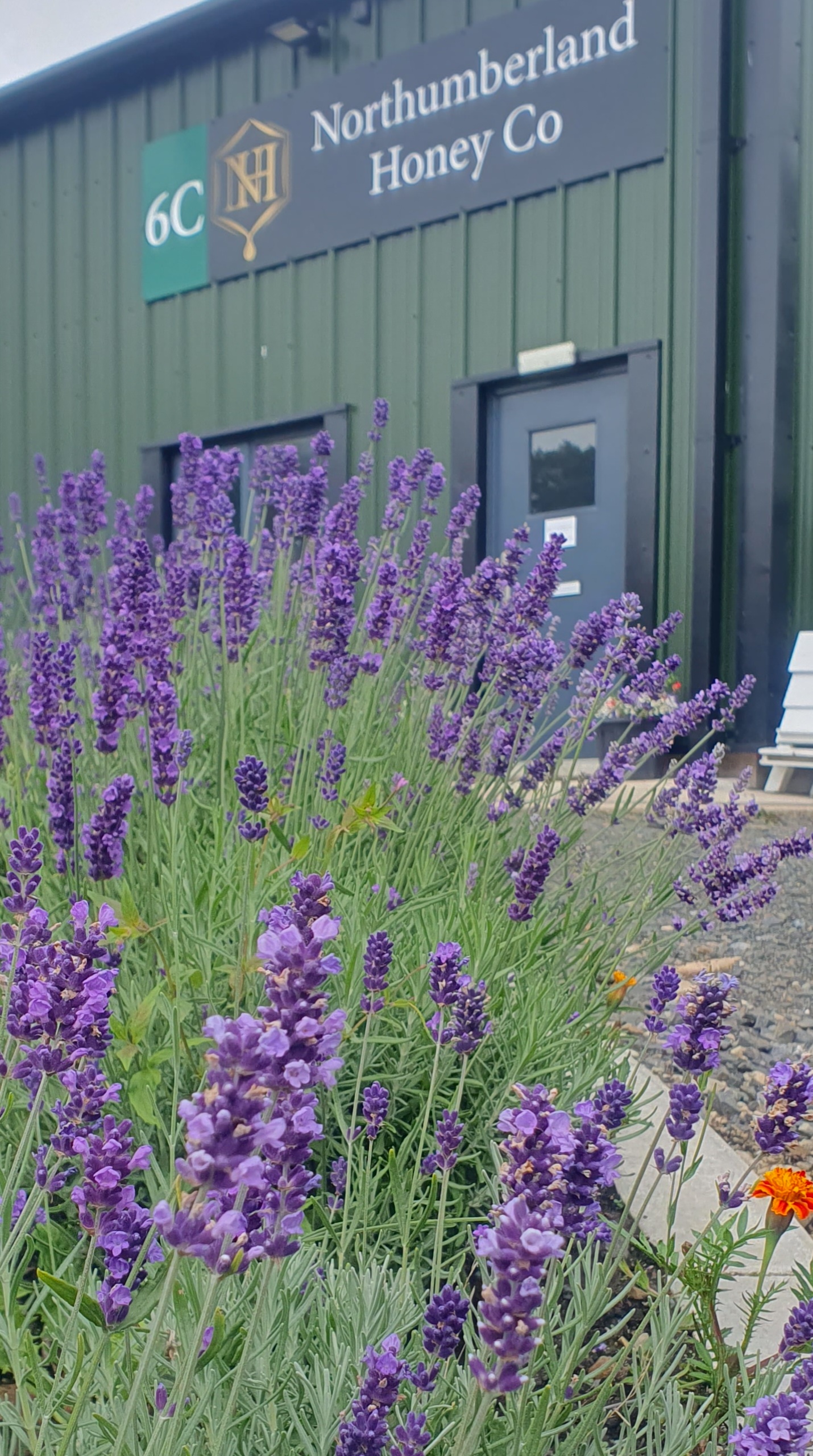
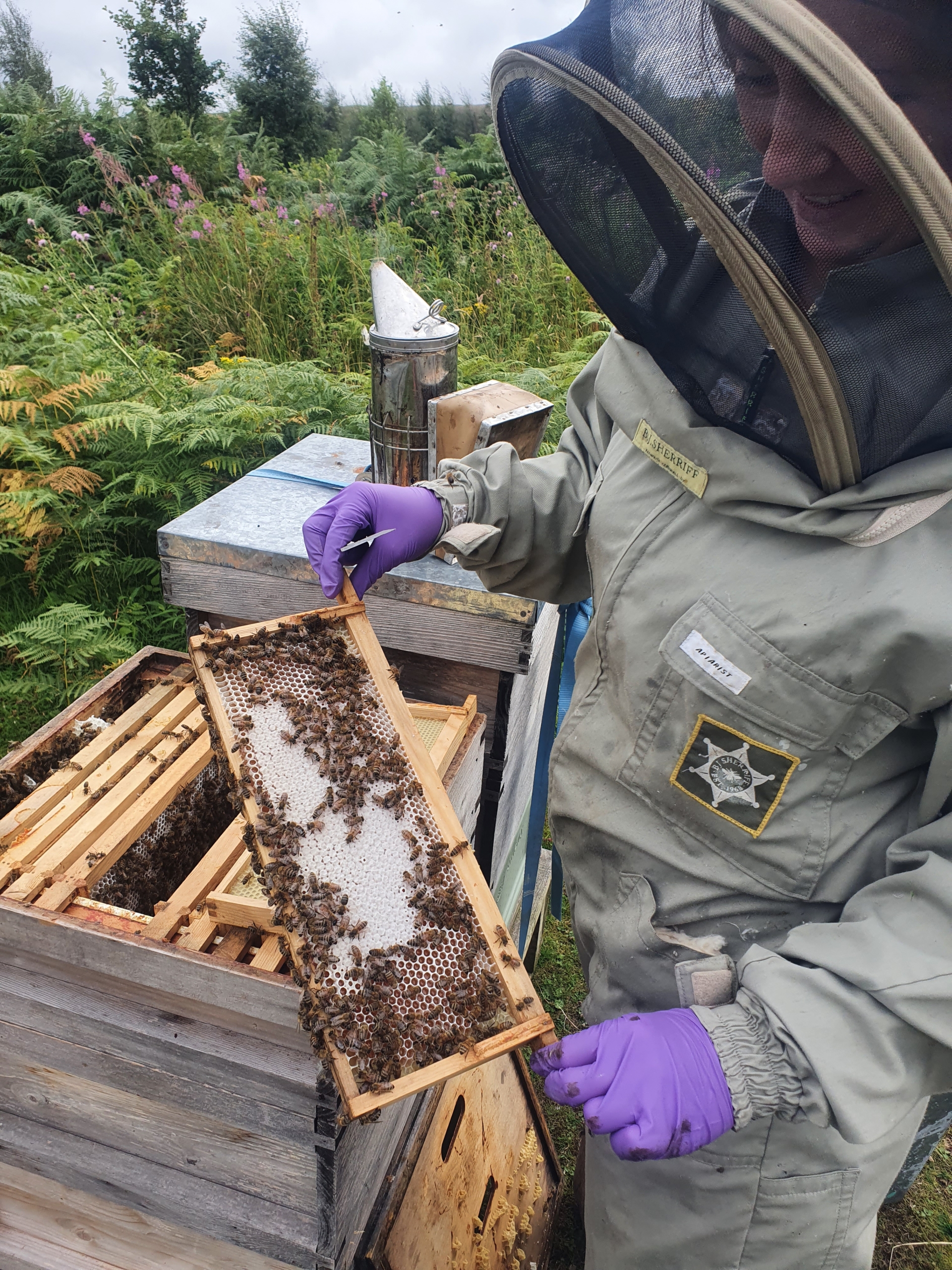
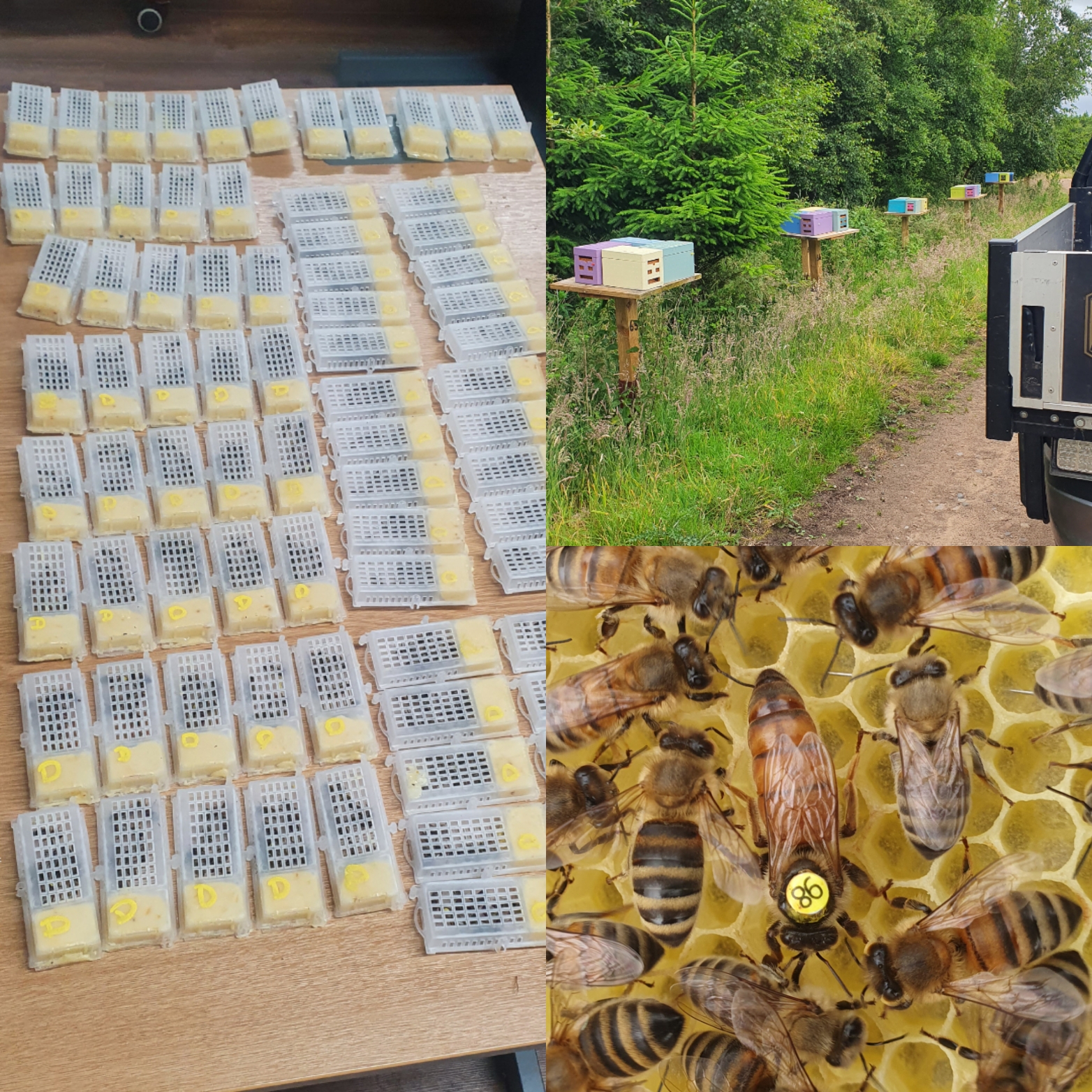
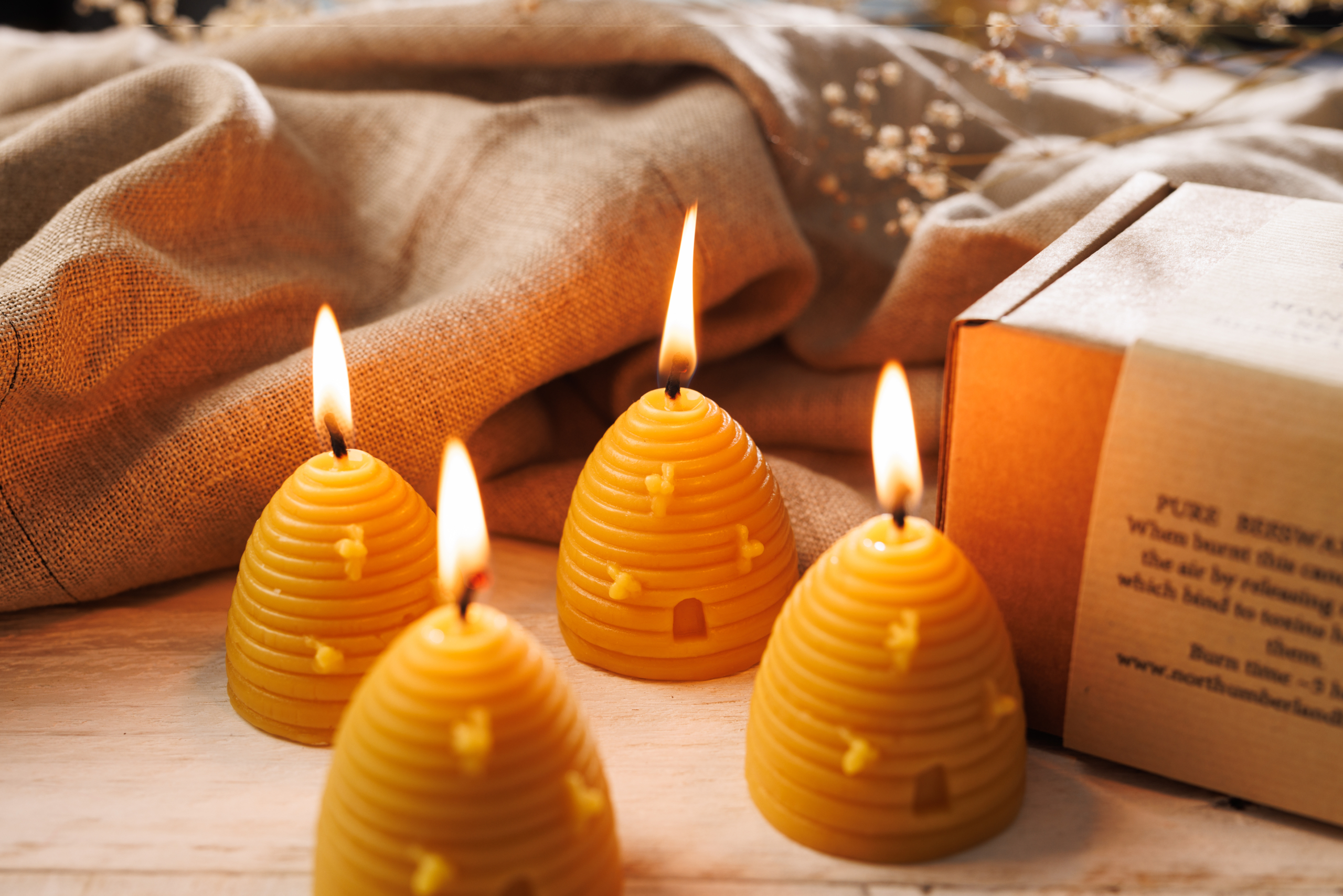
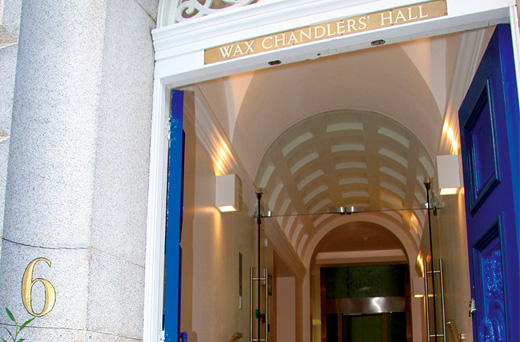
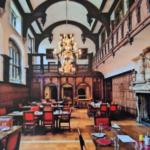 Court Assistant John Simpson
Court Assistant John Simpson